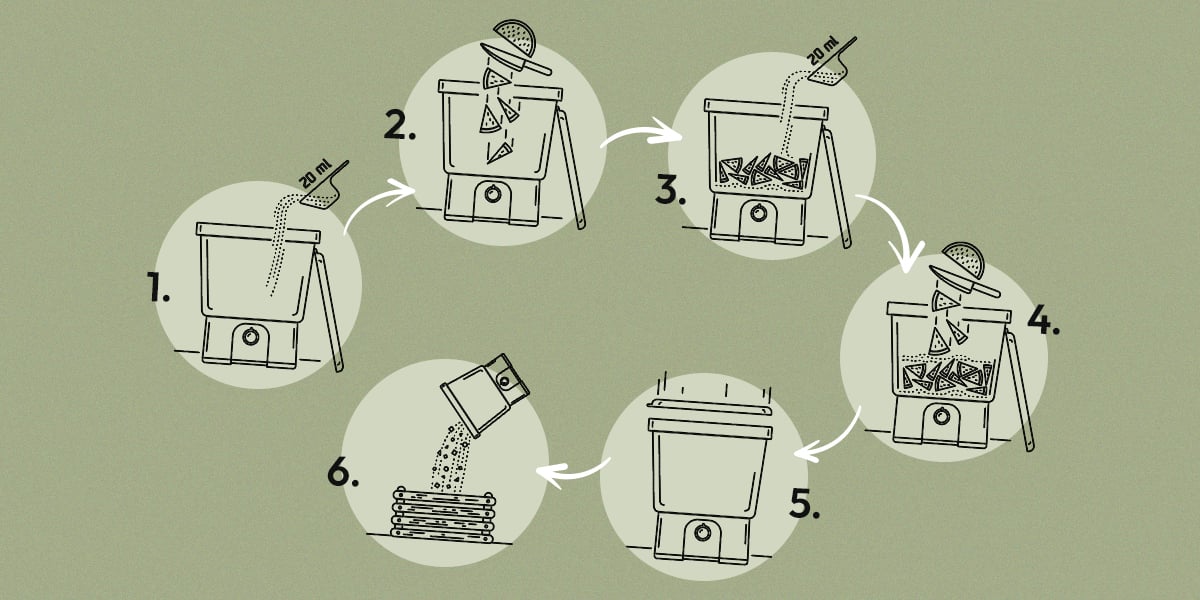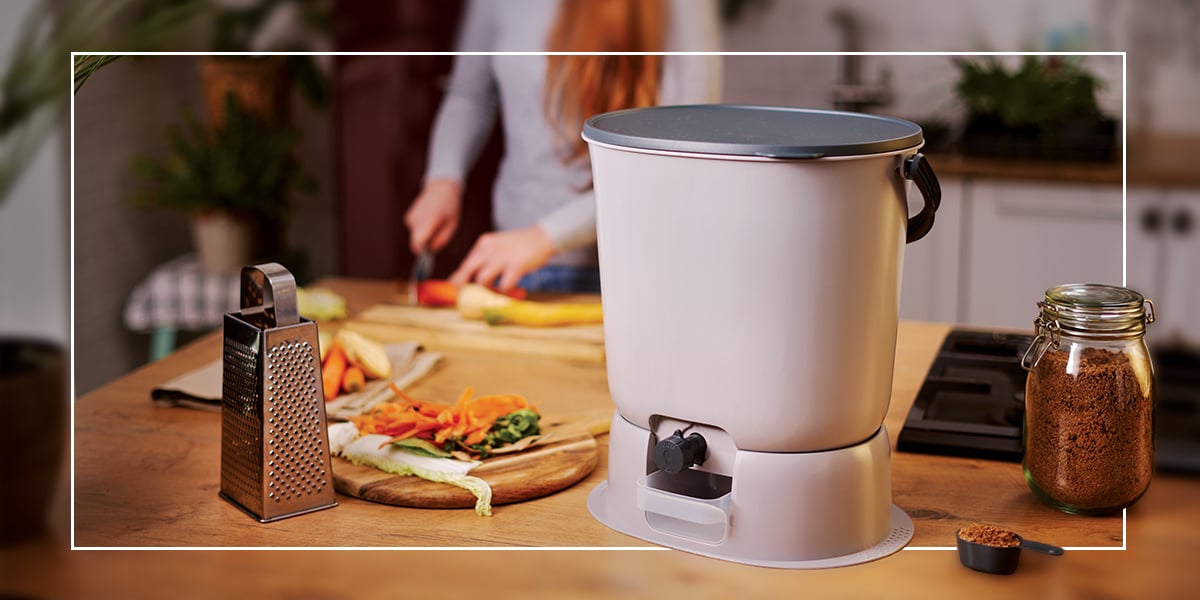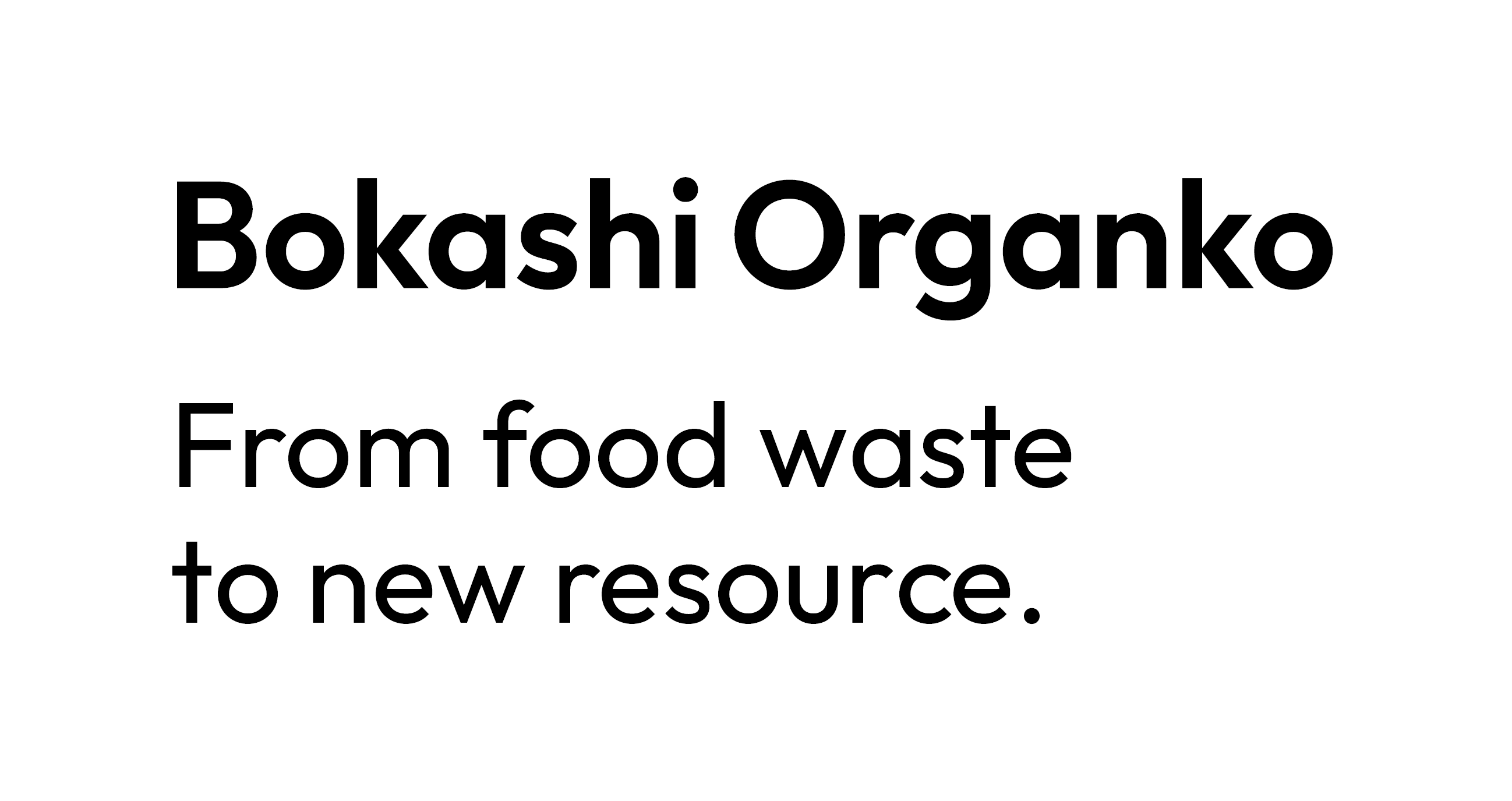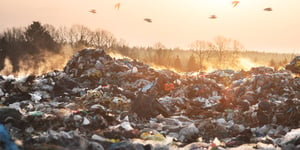Did you know that the majority of municipal waste is food waste? What’s more, most of the food waste still ends up in landfills. And, food waste in landfill is very bad for the environment. For one, rotting organic waste produces methane, which is 25 times more potent greenhouse gas than CO2. So, given the fact that enhanced global warming is one of the greatest issues that our planet faces, food waste in landfill is no joke. Moreover, rotting waste is a paradise for pathogens and pests. Further, rain tends to flush these pathogens into the groundwater, causing serious issues for many communities around the globe.
We’re not telling you about these issues to bum you out or scare you. Instead, we want you to take these concerning facts about food waste in landfill as a motivation. After all, there is a known solution; we just need to implement it in our daily lives. Of course, like any large change, it takes some time. However, you (as an individual household) can make this change overnight. Moreover, if a South Korean city Busan (a.k.a. Pusan) can pull this much-needed change, no other town/city has an excuse.
What’s the method to reduce or even eliminate food waste in landfill?
Thanks to the ancient Japanese method known as bokashi composting, every household can responsibly handle food waste right at the source. And, all it takes is a proper airtight bin and bokashi bran (fermentation starter). The latter is rich in beneficial or effective microorganisms (EM), which ensure that the composting process goes down the right path.
In fact, it’s worth pointing out that despite being known as bokashi composting, this method is technically fermentation. Thus, it requires airtight conditions, unlike traditional composting. This is also why it is highly user-friendly and suitable for indoor use. After all, when you use a proper bokashi composting bin, there’s no unpleasant smell and no pests related to this kind of organic food collection. Plus, the fermentation establishes highly acidic conditions and a high concentration of EM, which prevents any pathogens and even kills existing ones.

Moreover, compared to traditional composting the bokashi method emits about twenty times fewer carbon emissions. It’s also faster in producing compost. All this makes bokashi composting extremely user- and environment-friendly. So, the first step is to properly collect the organic material. Then the bin in combination with bokashi bran does its thing of processing organic waste into pre-compost mass (bokashi cake). Finally, we just need to bury this mass into the ground where it turns into quality compost fast without any additional human interference. Hence, it serves as a new resource and can be the foundation of organic farming.
In addition, the bokashi composting produces a side product - fermentation liquid (bokashi juice). We can dilute this juice in a 1:100 or 200 ratio to get a natural fertilizer.
Bokashi method - a universal solution
The above-described method is the key to reducing and eventually completely eliminating food waste in landfill. It is applicable to every household in the world. Rural households that have their own gardens, can use the resources themselves. However, urban dwellers need to further form communities to organize collective pickup of their kitchen waste and provide these resources to local farmers. That is exactly how Busan managed to reduce food waste in landfill by more than 30%.
How Busan reduced its food waste in landfill by more than 30%
Just behind Hong Kong, Busan is the world’s second busiest seaport. And, as you can imagine, where there are a lot of people, this also means a ton of waste. Already in the beginning of the 1990s, the officials of this South Korean city knew that food waste in landfill was their biggest issue. After all, it was polluting their air, soil, and water.
As such, they turned to the bokashi method, starting with a pilot project. They involved certain communities to start collecting food waste in airtight bins. Then, they collected that waste and delivered it to local farmers, who buried it in the ground to create quality compost. This compost then served as a valuable source of nutrients for the plants, which completed the food cycle. The pilot project was so successful that within the first year, almost 14 % of Busan’s households were participating. Over the next four years, approximately half of the city was responsibly managing its organic waste. And, as a result, the city reduced food waste in landfill by 31%.
Busan continues to be one of the exemplary cities when it comes to responsibly managing not just organic waste but all types of waste. It manages to do so with proper incentives - a system and laws that reward those who manage their waste responsibly and punish those who don’t. Plus, using new technologies to keep track of produced waste per household helps reinforce the rules.

Are you ready to help reduce food waste in landfill?
In many ways, it’s quite sad that the laws prohibiting food waste in landfills that have been in place in Busan since 2013 are coming to Europe ten years later. However, better late than never, right? So, the only question remains if you are ready for these laws. Do you know how to handle your household organic waste responsibly? If you’re not sure, enroll in our free Bokashi Academy!


